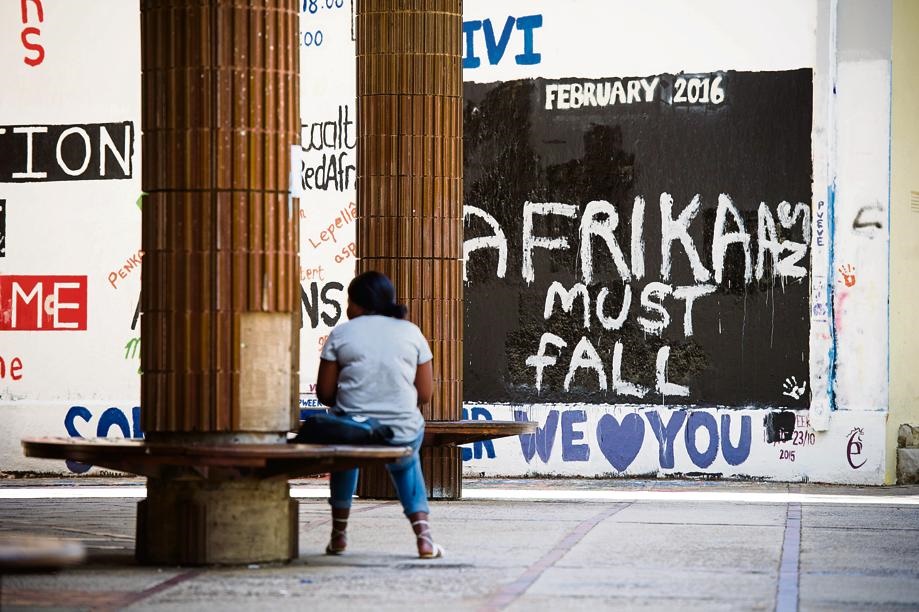
It’s 40 years since the Soweto Uprising, and vernacular languages remain a pipe dream in our schools, write Dumisane Lubisi and Hopewell Radebe
Dumisane Lubisi writes:
A few years ago, Afrikaans was dropped in schools around my hometown in Mpumalanga. The schools maintained siSwati as their first language and English as an additional language.
It was decided that there was no need for a third language. This approach was easy to implement in a community where most, if not all, households comprise siSwati speakers.
In Johannesburg, introducing a vernacular language in former Model C schools appears to be a mountain too high to climb.
Two years ago, my sons’ school sent a communiqué to parents, asking which language they would want to see included as an additional one – English is the home language used at the school, with Afrikaans as a first additional language.
On the return slip, I wrote isiZulu instead of my siSwati mother tongue. I did so, mindful of there being only a handful of us siSwati speakers in Gauteng, and probably fewer in my area. I chose isiZulu by virtue of it being part of the Nguni languages, together with siSwati, isiNdebele and isiXhosa. So, my choice made sense given its similarities with siSwati.
On releasing the results, the school announced that they were inconclusive about what language should be introduced, and went on to say that it would wait for a directive from the department of education on the language policy.
At the school’s annual general meeting in November, one parent asked why our children were being taught Afrikaans, as opposed to the other languages. The explanation was that the department had not yet clarified the language policy, and as such, the school would continue with the status quo.
We are still using English and Afrikaans – none of the vernacular languages is being taught at the school.
The language question has come to the fore again as the country celebrates Youth Month in commemoration of the events of June 16 1976, when Soweto learners marched in protest against the illegitimate government’s apartheid policies, which included the implementation of Afrikaans as the medium of instruction.
Since 1976 – and 22 years into our democracy – the question has to be asked: What has changed in schools between then and now?
Not much. English is still the most dominant language, with Afrikaans featuring prominently in many schools.
We parents are complicit in perpetuating this by our failure to find common ground for vernacular languages to be introduced at our children’s schools. The status quo, inherited from apartheid times, will continue until we take a stand to ensure equal representation of all official languages in our schools and in government.
If you doubt this, check the languages on government-issued official forms the next time you are required to complete one.
Hopewell Radebe writes:
In a debate between AfriForum chief executive officer Kallie Kriel and Gauteng Education MEC Panyaza Lesufi on the future of Afrikaans schools, held last week in Tembisa, on the East Rand, the Afrikaans community accused the education department of unfairly targeting its schools.
Lesufi responded with counter-accusations, saying Afrikaans schools were becoming exclusively white spaces and that Afrikaners were really not defending their language at schools, but their territory.
While the debate went some way towards highlighting the country’s political grievances, I empathised with Lesufi – because his problem has less to do with the Afrikaner community defending its territory than with black African communities increasingly endorsing the dominance of English and Afrikaans in previously white suburban schools.
The debate reminded me of recent events at my son’s primary school in Alberton in Ekurhuleni Metropolitan Municipality.
The majority of black parents vehemently rejected an opportunity presented by the school governing body to introduce at least one African language into the curriculum.
The initiative had been prompted by the recognition of fundamental changes in the school’s demographics, which had demanded that the body take corrective measures by introducing one or more indigenous languages.
Following a heated debate, parents voted overwhelmingly to keep Afrikaans as the second language of instruction. For a start, they could not agree on which alternative language would be suitable.
Some argued that introducing isiZulu, the home language spoken by the majority of parents with learners at the school, would be unfair to children of parents speaking isiXhosa, isiNdebele, siSwati, Sesotho, Sepedi, Setswana, Tshivenda and Xitsonga.
Other speakers rejected the call for change by saying that the time was not “ripe” to yank Afrikaans out of the curriculum. Still others said the lack of industrial and economic power by black Africans meant that their children would “suffer to find employment” if the school abandoned Afrikaans, because Afrikaners were still “captains of industry and owners of the economy”.
So, democracy prevailed. Afrikaans was retained by the same generation that fought tooth and nail against the dominance of that language, and buried thousands who were murdered by the apartheid regime in trying to ram this very language down our throats.
Which brings me to conclude that AfriForum has no reason to worry. It does not need to lift a finger to save Afrikaans because black Africans have taken it upon themselves to save it.
The man facing an uphill battle is Lesufi, along with his team, who suddenly have to convince black Africans why it is important for their children to learn their languages. Will anyone join them in defending our vernacular, I wonder.
TALK TO US
Are parents stifling mother tongue education? What can be done to encourage using all languages in our education system?
SMS us on 35697 using the keyword LANGUAGE and tell us what you think. Please include your name and province. SMSes cost R1.50




 Publications
Publications
 Partners
Partners








